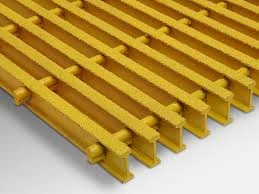loading...
- No. 9, Xingyuan South Street, Dongwaihuan Road, Zaoqiang County, Hengshui, Hebei, China
- admin@zjcomposites.com
- +86 15097380338
- Welcome to visit our website!
Understanding the Importance of Carbon Filter Vessels in Water Treatment Applications
Understanding the Carbon Filter Vessel An Essential Component for Air and Water Purification
In today’s world, the importance of clean air and water cannot be overstated. Pollution levels continue to rise due to industrial activities, urbanization, and the proliferation of vehicles, leaving us with a pressing need for effective purification methods. One crucial technology in this context is the carbon filter vessel. This article delves into the function, benefits, and applications of carbon filter vessels, shedding light on their indispensable role in filtration systems.
What is a Carbon Filter Vessel?
A carbon filter vessel is a specialized container designed to hold activated carbon, a highly porous material that excels in adsorbing pollutants from air and water. The activation process increases the surface area of carbon, greatly enhancing its ability to bind with various contaminants. Typically constructed from materials such as stainless steel, fiberglass, or durable plastics, these vessels are engineered to withstand the conditions of operation, including pressure and temperature fluctuations.
How Does It Work?
The functionality of a carbon filter vessel hinges on the principle of adsorption. When air or water passes through the vessel, pollutants are attracted to and adhere to the activated carbon surfaces. This process traps harmful substances, including chlorine, volatile organic compounds (VOCs), and heavy metals, effectively purifying the medium. The efficacy of a carbon filter largely depends on factors such as the type of carbon used, the flow rate of the substance being filtered, and the contact time, which is the duration the medium spends in contact with the carbon.
Benefits of Carbon Filter Vessels
1. Highly Effective Filtration Carbon filter vessels are renowned for their ability to remove a wide range of contaminants. From improving the taste and smell of drinking water to eliminating harmful air pollutants, their versatility makes them a vital tool in both residential and industrial applications.
2. Economic Solution Compared to other filtration technologies, carbon filtration offers a cost-effective solution. Activated carbon is relatively inexpensive, and the vessels can often be reused or regenerated, leading to lower operational costs over time.
3. Environmental Impact The use of carbon filter vessels contributes to environmental sustainability. By ensuring clean air and water, these systems help reduce the impact of pollution on ecosystems and human health. Moreover, the carbon used can often be derived from renewable sources, such as coconut shells or wood, further minimizing environmental footprints.
carbon filter vessel

4. Ease of Maintenance Operating a carbon filter vessel requires minimal maintenance. However, it is essential to monitor the condition of the carbon, as it becomes saturated over time and must be replaced or regenerated to maintain effectiveness. Regular maintenance schedules can ensure continued optimal performance.
Applications of Carbon Filter Vessels
Carbon filter vessels find extensive applications across various sectors
- Municipal Water Treatment Many water treatment facilities utilize carbon filter vessels to remove impurities from drinking water, ensuring safety and compliance with health standards.
- Industrial Processes Industries that produce volatile organic compounds or other hazardous waste frequently install carbon filters to mitigate emissions and meet regulatory requirements.
- Air Purification In HVAC systems, carbon filter vessels are integral to improving indoor air quality by trapping airborne contaminants, allergens, and odors, thus making environments safer and more comfortable for occupants.
- Home Use Many households employ carbon filter vessels in water filtration systems and air purifiers, promoting health and enhancing the quality of life.
Conclusion
As global challenges related to pollution and environmental degradation intensify, technologies like carbon filter vessels become increasingly important. Their efficiency, cost-effectiveness, and versatility make them a key component in air and water purification systems. By understanding and investing in carbon filter technology, we can take a significant step toward ensuring a cleaner, healthier, and more sustainable future for all. The role of carbon filter vessels is not just about removing impurities; it is about fostering a better quality of life and preserving our planet for generations to come.
-
GRP Structures: The Future of Lightweight, High-Performance EngineeringNewsJun.20,2025
-
FRP Water Tank: High-Performance Storage for Corrosive and Clean Water SystemsNewsJun.20,2025
-
FRP Square Tube: The New Industry Standard for Chemical and Structural ApplicationsNewsJun.20,2025
-
FRP Pultruded Profiles: The Ultimate Choice for Lightweight Structural StrengthNewsJun.20,2025
-
FRP Handrails: The Safer, Smarter, and Stronger Choice for Modern InfrastructureNewsJun.20,2025
-
FRP Grating: The Smart Solution for Durable, Lightweight Industrial FlooringNewsJun.20,2025
-
Why Choose a Galvanized Water Tank for Your Storage NeedsNewsMay.21,2025
